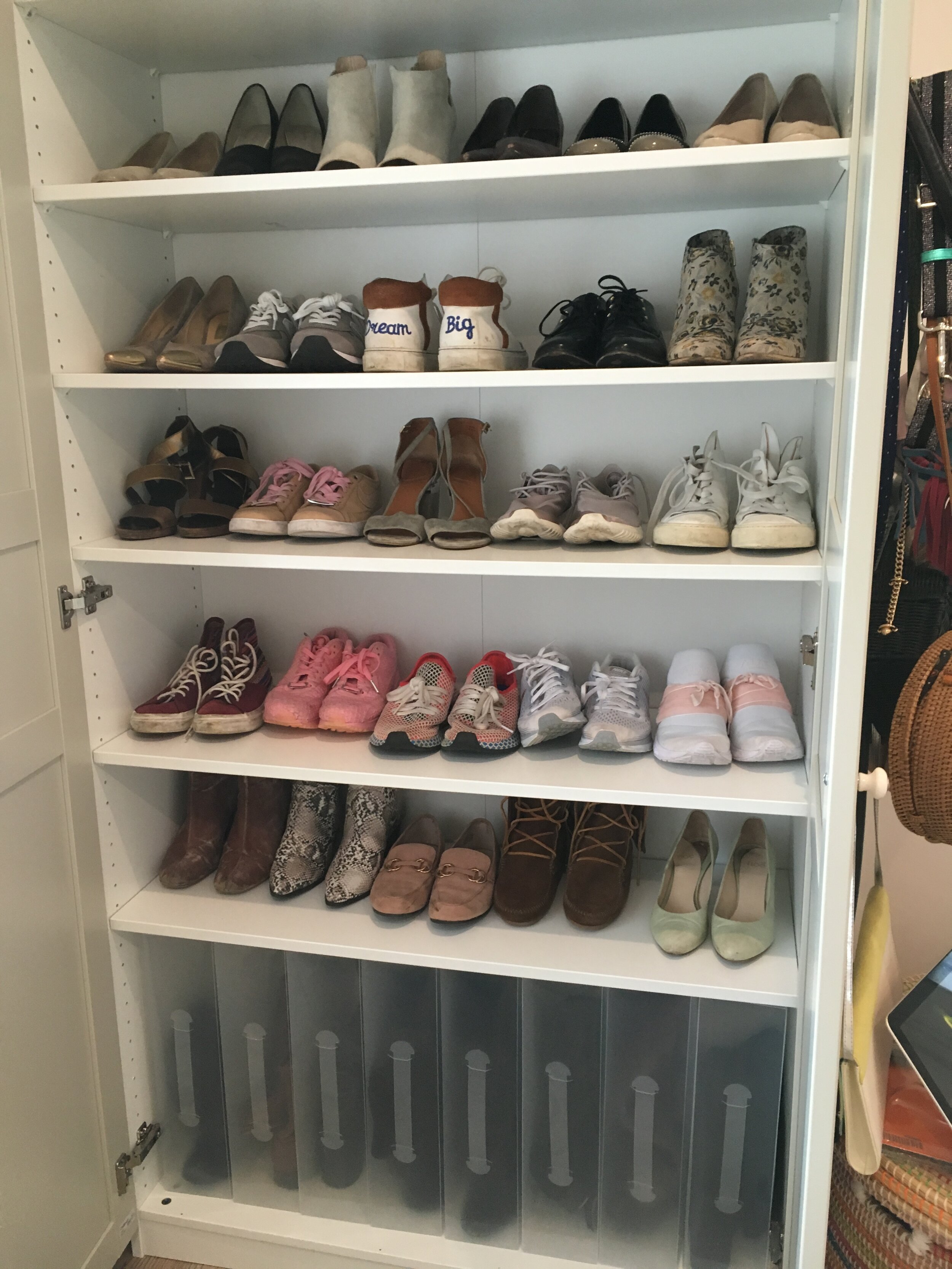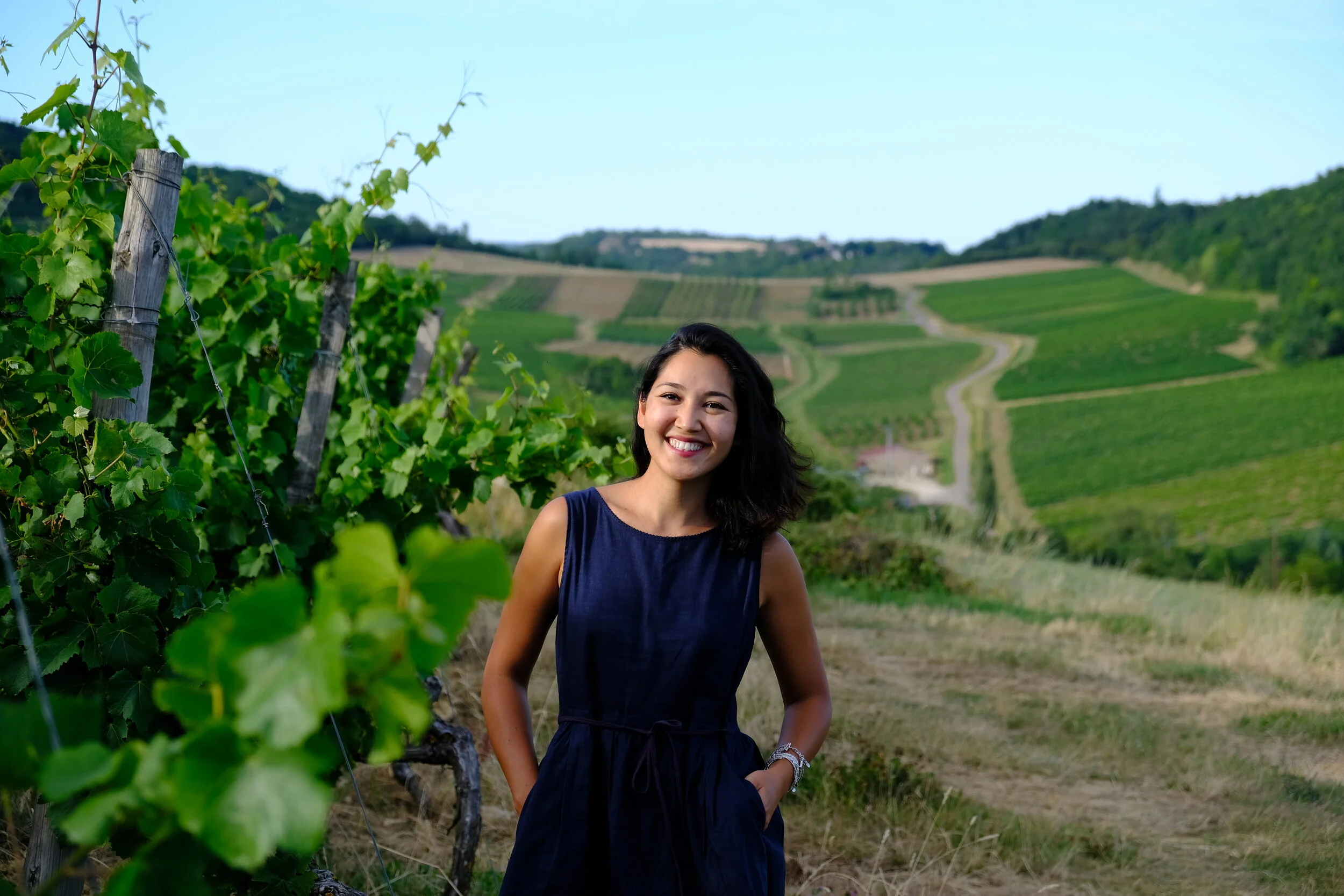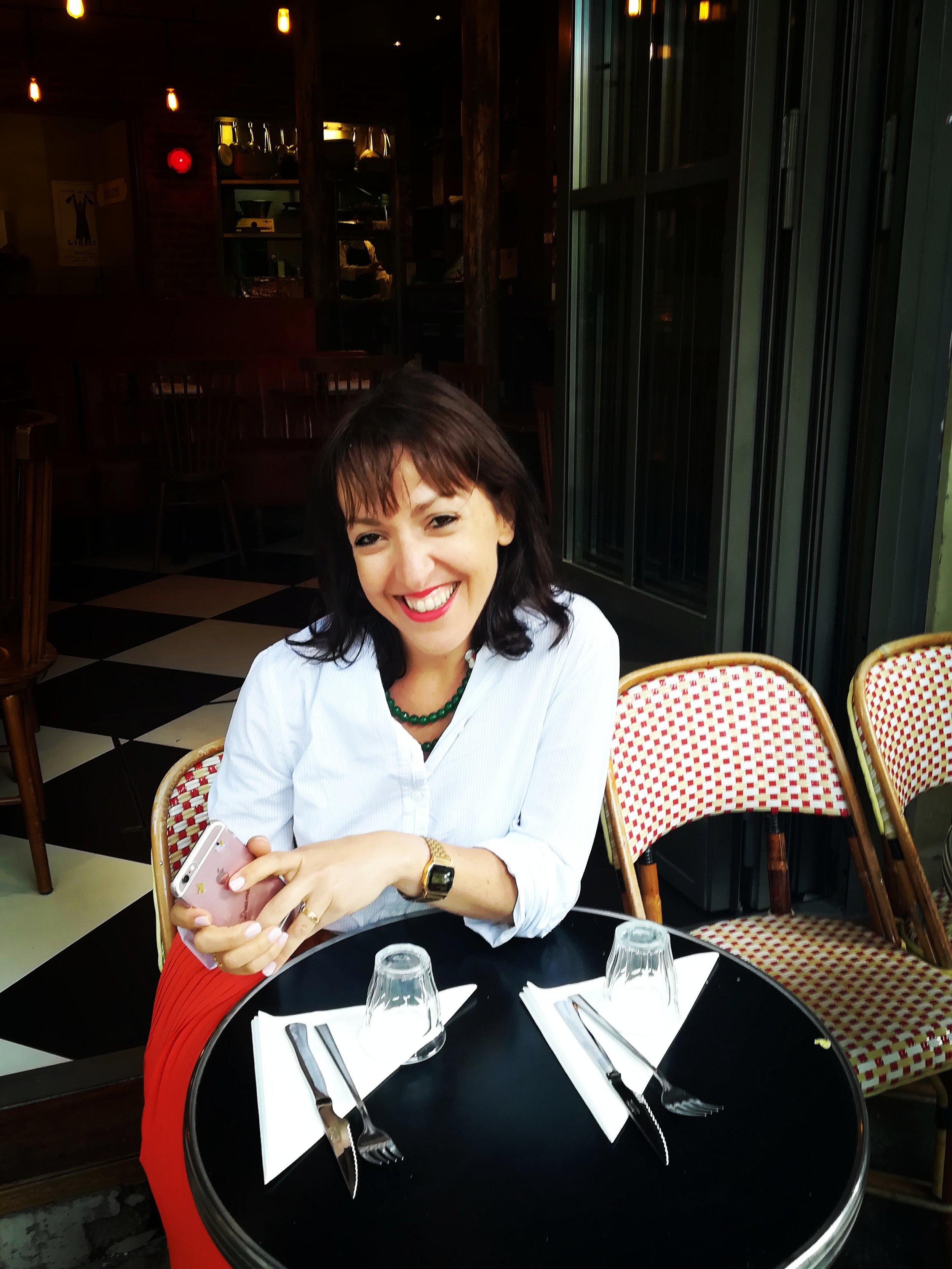How to Create a Life that Sparks Joy
Elizabeth Puerta is a Well-being & Organizational Coach , Certified Consultant of the KonMari™ method, and founder of Well Being Organized. From a very early age, she knew that her Ikigai or “life purpose” was tied to helping people find out what made them happy. This calling became even clearer thanks to a serendipitous encounter with a “nice lady” during a metro ride in Japan—years later, that stranger became a renowned tidying expert and an international sensation: MarieKondo.
Today, Eli continues her mission of inspiring and supporting other people to live a life full of happiness, serenity, and inspiration, one tidy home at a time.
Blisshood: Eli, it seems like you knew from an early age that you had a talent for organizing spaces and for wanting to “spark joy”, why is that?
Eli Puerta: When I was a kid I use to read my fathers’ comics. He loved a Japanese one about Samurais and in that comic, they talked a lot about something that in Japanese we call “Ikigai” or purpose in life. Ikigai is the “perfect” balance between what we love to do, what we are good at doing, what the world needs and what we can be paid for. But at that time, my father only explained to me that Ikigai was about what I loved to do and what I was passionate about. And tidying up was one of my special gifts, combined with the ability to help people find what made them happy.
I was a very curious kid. I loved to talk to “grown-up” people and ask them questions about what they loved, and when you get that kind of question from a child, you just answer from your heart, and it is from the bottom of our hearts that the good answer comes and that we feel that spark of joy. In that period of my life, I realized what my talent was and what made me happy. Also, I did a deal with myself: to keep that [calling] in mind.
Blisshood: You are one of the lucky people that have had the chance to know KonMari before, during, and after she became famous…can you tell us how you met her and how you kept in touch?
KonMari and Eli Puerta, founder of Well Being Organized
Eli Puerta: A few years ago my family and I went to Japan. It was a dream trip because I love the Japanese culture and philosophy of life. I lived with a Japanese family for 9 months when I lived in the United States. On that trip to Japan, we were at the metro and my husband asked me for a Kleenex, I opened my bag and handed him the Kleenex. Then, my daughter asked me for her glasses, I open my bag and handled her her glasses. There was this nice lady sitting next to me and in a very polite and shy way she said to me: “Your bag is really well organized”. I instantly replied to her that I was passionate about tidying up and that I was quite an organized person. She replied to me with the same excitement: me too! I am a “tidying up consultant” and I have written several books about tying up. I was so happy, I remember that my “ikigai” was linked to being a tidying up consultant, so I had an “aha” moment. She told me that her books were going to be translated into English and then left the metro in a hurry. A few months later back in Belgium, I heard on the radio that the books of a very famous Japanese Tidying up Consultant were translated, and I ran to the bookstore to order them. A few weeks after I got the book, I read it in a few hours and I emailed her asking to be trained as tidying up consultant. I enrolled in her Consultant program and I went to New York to meet her and be trained by her. I became then a Certified KonMari Consultant and I got my first picture with Marie. That seminar was amazing, I had the opportunity to talk to her and her husband and get to know her translator as well, an amazing girl whose grandmother was from Belgium. After Marie became a Netflix star she came to London to do her first training in Europe and I had the chance to see her again (I had also a second picture with her) and had the opportunity to exchange with her and her assistants (other amazing women). So, I have had the joy of seeing her evolve as a businesswoman and as a worldwide icon.
Why do you think the KonMari method has become so popular?
Eli Puerta: In my point of view, the KonMari method answers to a very important human need: the need of being happy. By applying the first “principle” of the method: keeping only the thing that sparks joy to us, we are fulfilling that need. Also, we had started a new period after the “consumerism” period that we used to be in the ’80s and ’90s, and we start to realize that we have too much stuff. The method is also a fun way to learn to organize, and it ends up with the yo-yo effect of disorder, and it can be applied in any situation. The method is not only linked to the Japanese culture; it applies to any culture, religion, and philosophy. So that is also why it has become very popular worldwide.
An example of Eli’s Ikigai
Blisshood: There have been studies linking the state of a room with our emotional state…the more organized, the calmer, and happier the person…do you agree? Have you seen this link during one of your consultations?
Eli Puerta: Yes, I do agree. I experienced this link when I was a teenager (more than 30 years ago). I lost my mother when I was 14 years old and, as in almost all cultures of the world, I inherited her belongings (clothes, books, and a big collection of dolls) I did not want to keep those things (especially the dolls) because they made me sad. So, I decided to donate them and do a big reorganization at home and that helped me, my father, and my brother with the mourning of my mother. Then, when I started college, I also realized that I could be more productive if my room was organized. Nowadays, I see that link all the time with my clients. In our first session, we start to talk about their feelings and there is always the feeling of being overwhelmed, in a chaotic situation, depressed, exhausted,
as soon as we start to organize their houses/offices those negative feelings/emotions disappear and there is always a happier, organized, and calmer feeling
Organized closet using the KonMari method
Blisshood: Some people have strong attachments to objects with “high sentimental value”, how do you help these clients be able to let go of items that keep them from moving forward?
Eli Puerta: Yes. Actually, that attachment is the reason why people need to be supported by an organizational coach like me. Because besides the tidying up techniques, I use coaching tools to help people to understand where that attachment comes from, and I show them a way to let it go. We are all attached to something or someone, it is part of our nature as human beings. Most of the time we are attached to something in the past, or we are attached because we are afraid of the future. The key issue is to learn to live the present moment, the now in a flow state where we do not need that attachment. In order to learn faster and in an easier way, people need to be supported in that learning process. Even me! I have my personal life coach who also helps me to see things from another perspective and to let them go.
A room before Eli works her magic
Blisshood: In addition to your organizing business, you are also a life coach…can you share a few examples of how you help people find their life purpose?
Eli Puerta: Helping people find their life purpose is part of my own life purpose. So I have been learning about that for a long time. I started to become a life coach at the age of 15 years old. A few months after my mother passed away, my father took me to a psychologist to help me handle my mourning. I was so lucky because my psychologist was also a coach (and passionate about coaching) so he taught me all the coaching techniques. He also guided me to apply them to support my father and brother’s mourning and then with the surrounding people that needed to get some clarity about their purpose in life. So I use some coaching techniques and my own method to help people to remember what is their own Ikigai. One of the techniques is for instance a 5 step model that I use (I share it on my website). I have also developed coaching with the main 4 circles of the Ikigai. It is a series of “powerful questions” that help me see what are the “keywords” that my clients use to answer to those question and with that strategy, we can define they life purpose.
Blisshood: What is one piece of advice you would give to people struggling with loneliness and hopelessness due to the co-vid crisis? How can they feel that their surroundings “spark joy”?
Eli Puerta: This is a challenging period for everyone (even for us as coaches) so I suggest to people to do what I am doing, that is working pretty well. I am just taking care of my own world. That means taking care of the things I can control. Like for instance, I can control my energy. So I do things that put my energy level up, like being grateful for the little things I have, for the positive thing is my life. I also do the thing that made me happy, like listening to music, talking to people (even if is only via Zoom or WhatsApp). Another thing I can control is my own environment: my house. So I take the time to do things at home. I do not need to arrange anymore, but I do change things at home. I move things around, refresh some rooms, like the room where my desk is. Furthermore, I also ask for help! When I feel that I need to talk, I call the persons that I know will help me to raise my energy level and to talk about my feelings. And for the things I cannot control, I just give them neither my energy or my focus. I select the news I want to have, I do not go into endless discussions about the crisis and I just keep looking at the things that make me feel happy.
KonMari Method | Imagine Your Ideal Lifestyle. Credit: Marie Kondo
Blisshood: What is bliss for you? When do you feel blissful?
Eli Puerta: For me, bliss is something simple: like a blue sky or a forest walk. I feel blissful most of the time because I learned to give a huge value to simple things, like the smell of a cup of coffee in the morning or a cup of tea in the afternoon. I learned to cultivate a gratitude attitude in my life so feeling grateful for the small (but important) things I have is a powerful source of bliss. Not only that, but I am grateful from the second I open my eyes in the morning: for the warm feeling of the sheets in my bed, the noises my girls make in the morning, the song of the birds, the gray sky (we are in Belgium), my (pretty well organized) house, the hot shower I can take every morning … when you see and appreciate all those things you feel blissful all the time.
To find out more about Eli Puerta and Well Being Organized, visit:
the Well Being Organized website
Insta: @wellbeingorganized
Eli Puerta, founder of Well Being Organized











